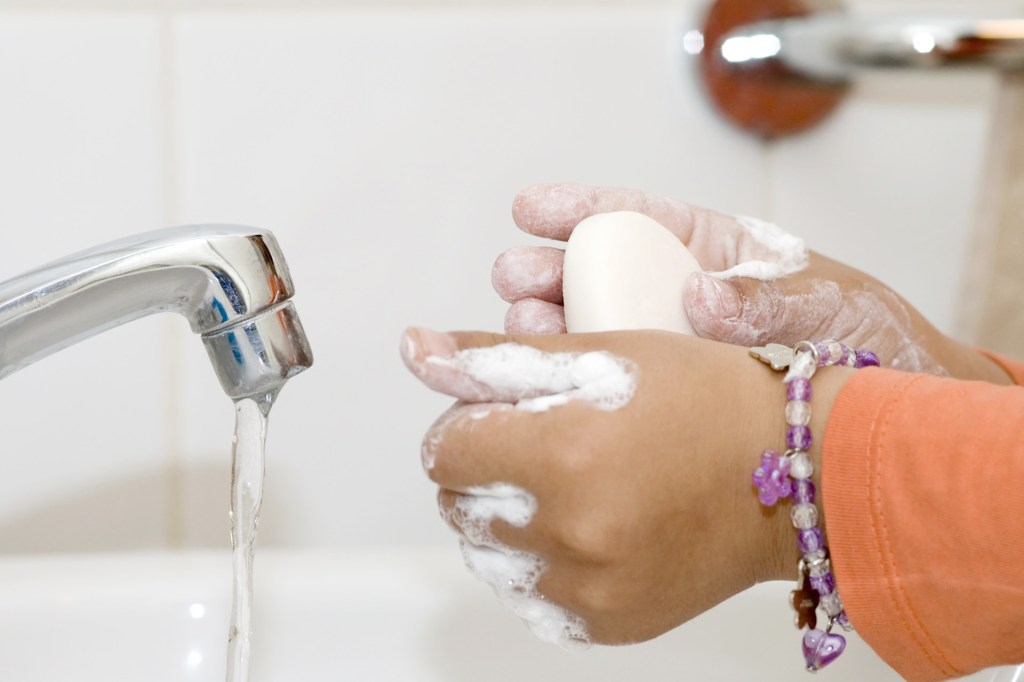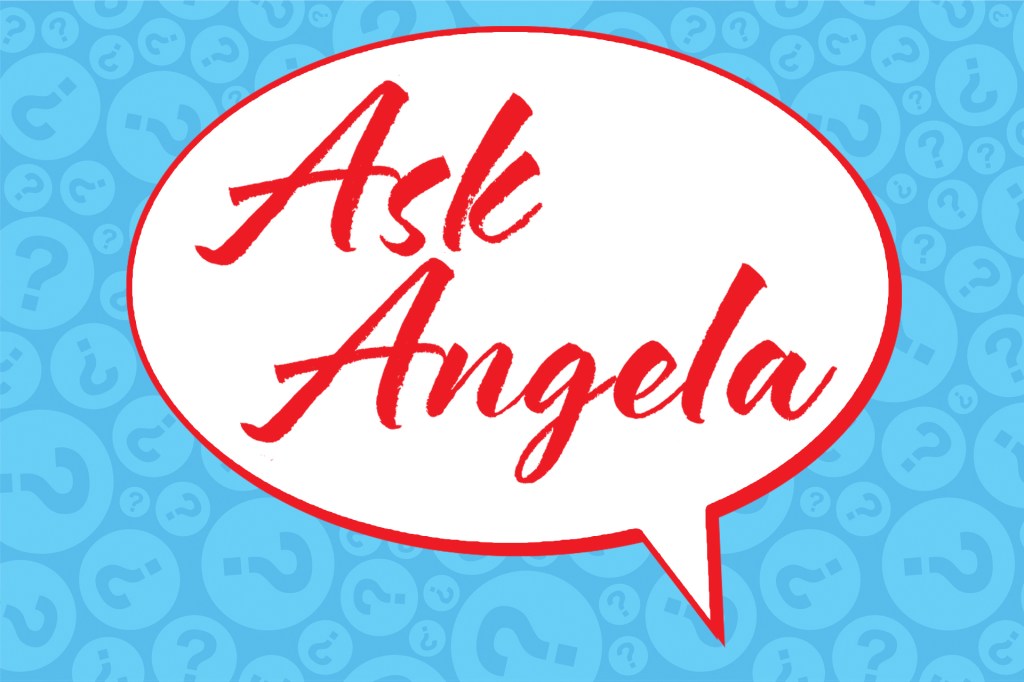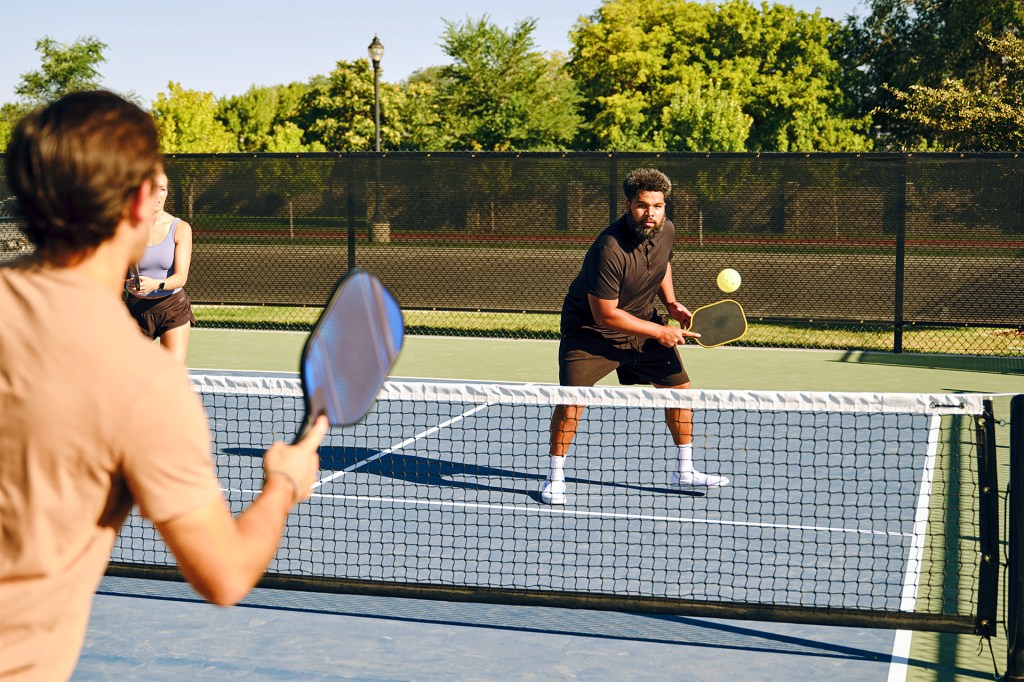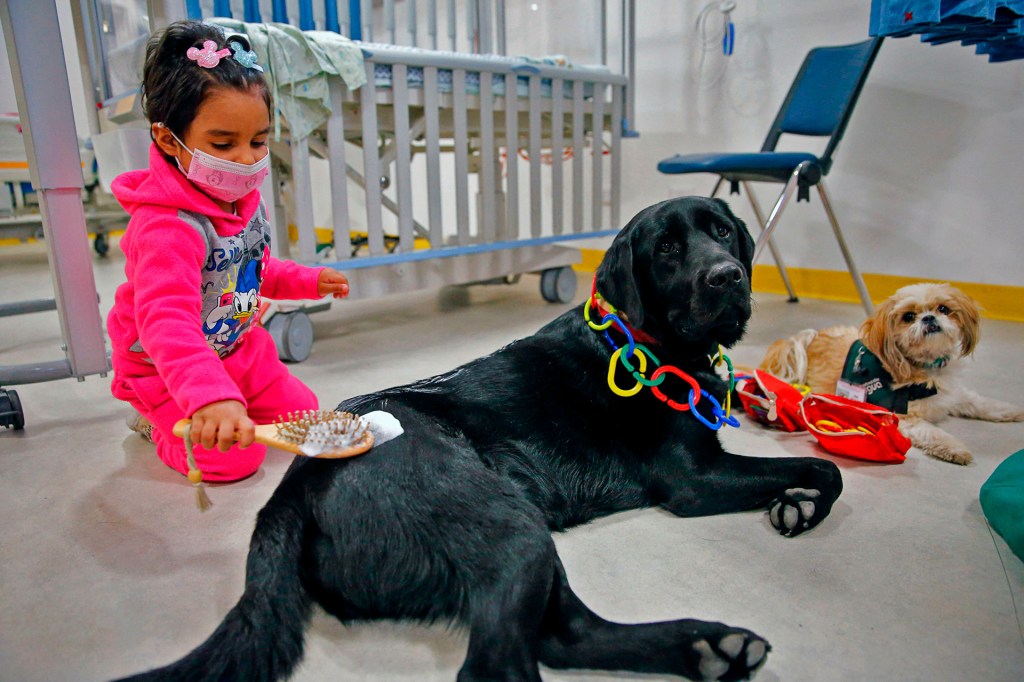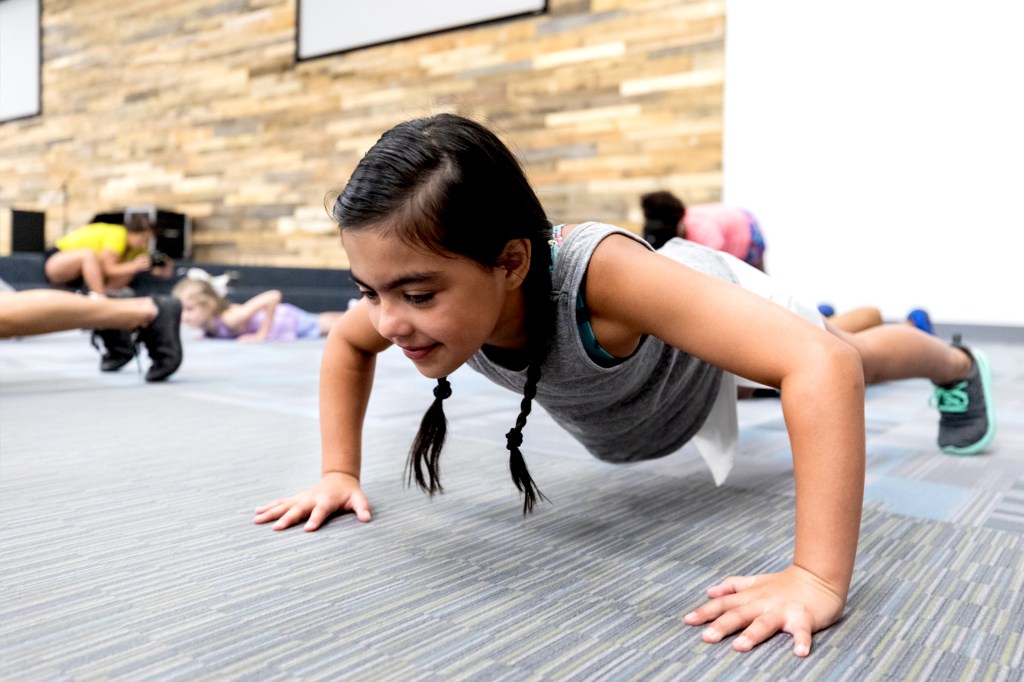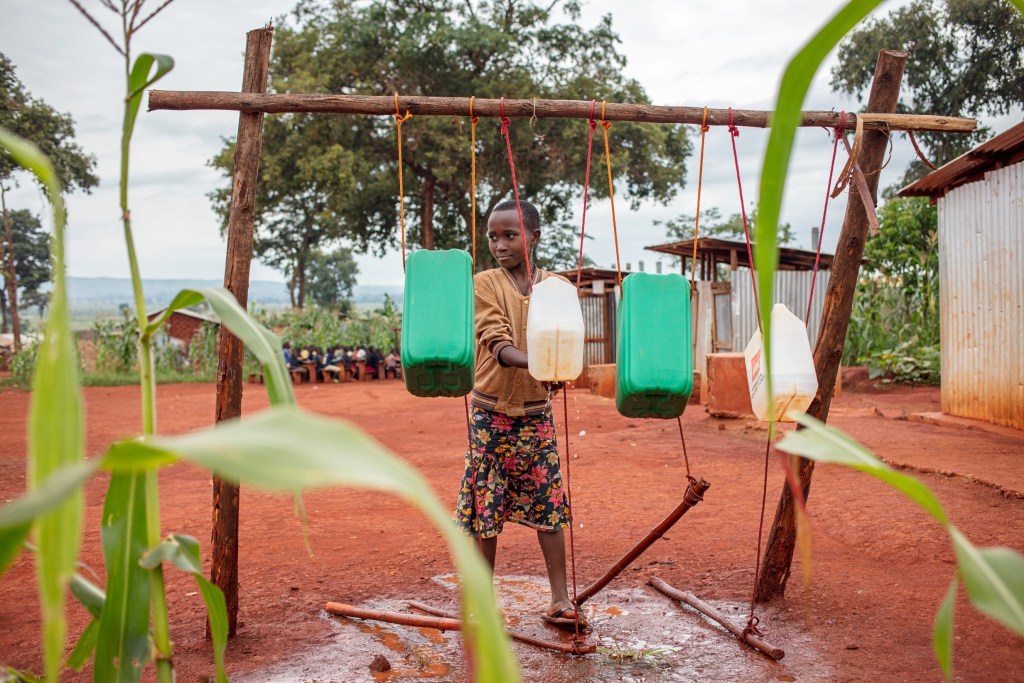
Handwashing is one of the easiest ways to protect against disease, including COVID-19. But how do you wash your hands when you don’t have running water?
Lack of running water and soap is a problem for 3 billion people in the world, according to the World Health Organization and UNICEF, the United Nations Children’s Fund. Tippy taps are one solution. These low-cost handwashing stations are helping people stay healthy.
Clean Hands Around the World
In Uganda, Faridah Luanda has been teaching her neighbors how to make tippy taps. She lives at Kyaka II, a refugee
refugee
 JOEL CARILLET—GETTY IMAGES"
a person who flees his or her home country for safety
(noun)
Many refugees from Syria now live in camps far from home.
settlement. “Washing hands is very difficult in our community,” she told TIME for Kids. “We don’t have access to washing facilities.” When the pandemic started and people were told to clean their hands frequently, “we needed to be creative,” Luanda says.
JOEL CARILLET—GETTY IMAGES"
a person who flees his or her home country for safety
(noun)
Many refugees from Syria now live in camps far from home.
settlement. “Washing hands is very difficult in our community,” she told TIME for Kids. “We don’t have access to washing facilities.” When the pandemic started and people were told to clean their hands frequently, “we needed to be creative,” Luanda says.
There are different ways to build and use tippy taps. But the basic tools include a plastic water bottle, soap, and rope. Hang the bottle from a branch or pole. Press a foot pedal to tip the bottle and release water. Then wet your hands and scrub with soap for at least 20 seconds. Done!
In Guatemala, a group called Buenos Vecinos (“good neighbors”) teamed up with the Rotary Club of Columbia Falls, Montana, to build tippy taps. “Sometimes, the little things make such a big difference,” Rotary Club member and project leader Dave Renfrow says.
Kids from the Lake & Park School, in Seattle, Washington, heard about the project. They raised $4,000 to support it. At press time, Buenos Vecinos had worked with people in several Guatemalan villages to set up nearly 400 tippy taps. Each cost about $12 to make.
Tippy taps are also being used in the United States. In Tucson, Arizona, they’re helping the homeless. Two were set up at a shelter called Sister José Women’s Center. The pandemic forced the shelter to close temporarily
temporarily
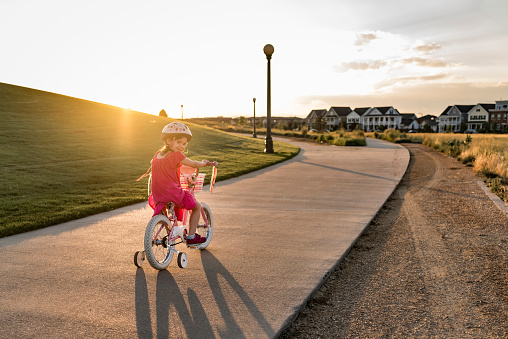 CAVAN IMAGES—GETTY IMAGES
for a short or limited time and likely to change
(adverb)
The training wheels are only on my bike temporarily.
. But workers continued to pass out food. “We needed a way to let people wash their hands” before eating, executive director Jean Fedigan says. “The tippy tap is such a simple solution.”
CAVAN IMAGES—GETTY IMAGES
for a short or limited time and likely to change
(adverb)
The training wheels are only on my bike temporarily.
. But workers continued to pass out food. “We needed a way to let people wash their hands” before eating, executive director Jean Fedigan says. “The tippy tap is such a simple solution.”
Luanda agrees. When TFK spoke with her, she and her neighbors had set up 800 tippy taps in the refugee settlement. “We are helping ourselves,” Luanda says. “Children, people with disabilities, other vulnerable people—they cannot be left behind.”





